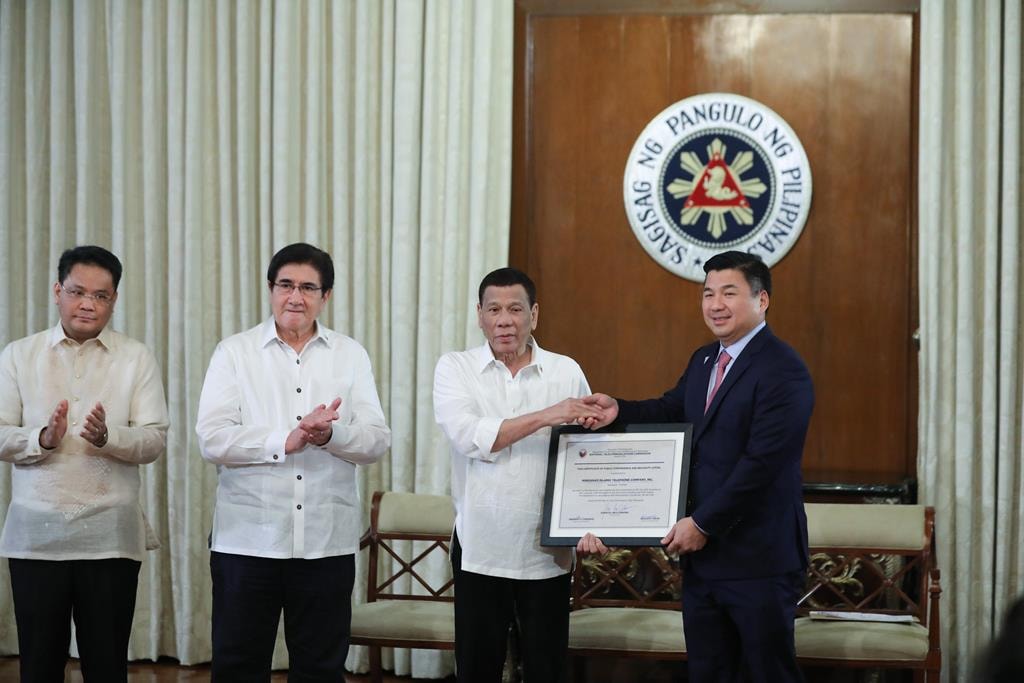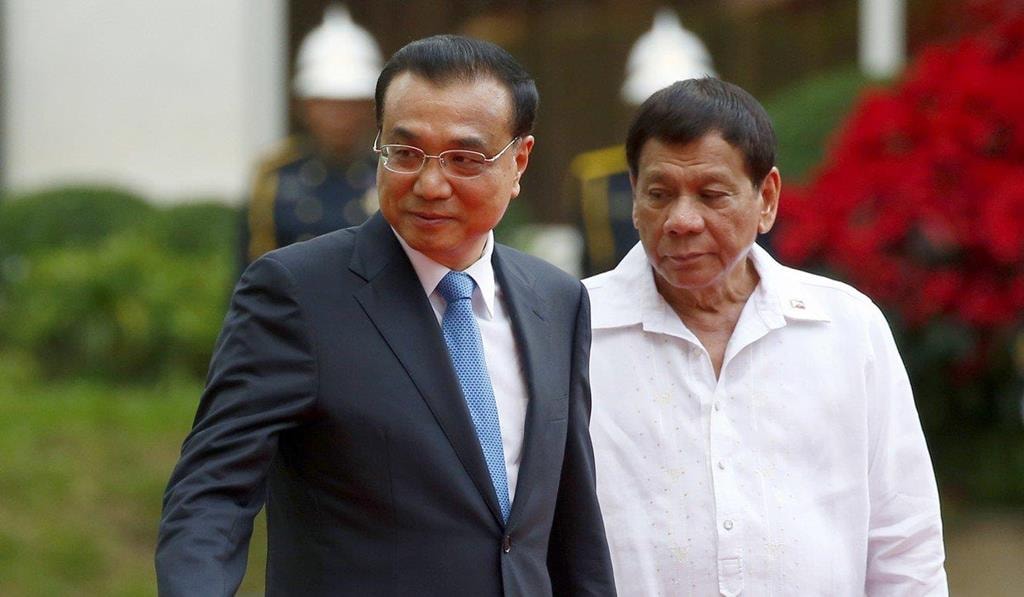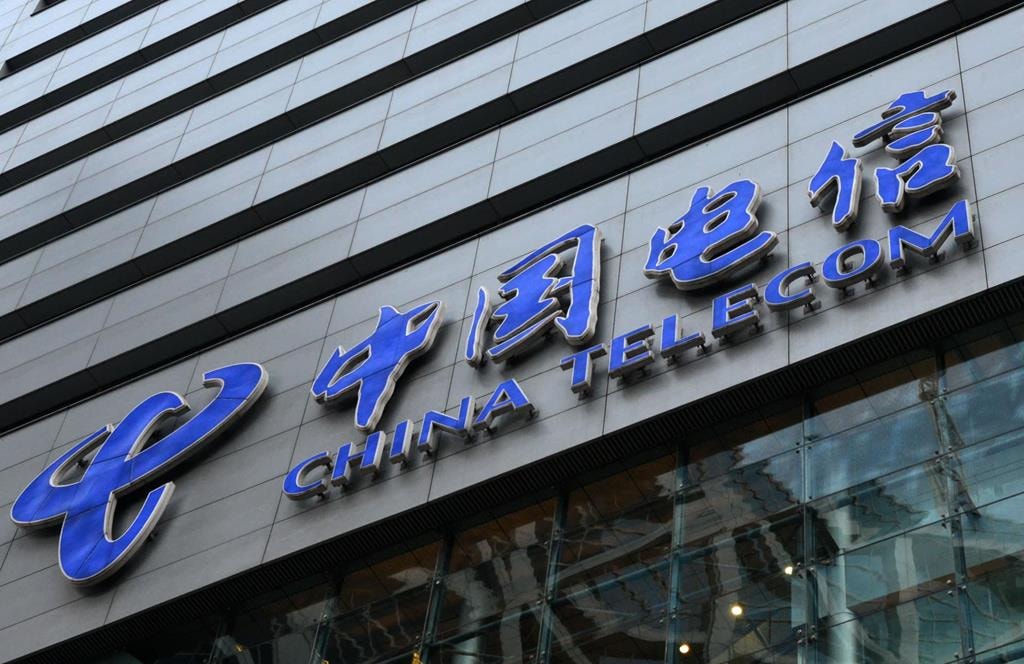China invests, Philippines faces security or internet speed problem
The Duterte administration has allowed a Chinese company to enter the Philippine telecommunications market for the first time despite national security concerns.
From Singapore with its blazing-fast internet speeds to Indonesia struggling with sluggish bandwidth, telecoms provider consolidation is a trend in Southeast Asia as the industry looks to focus resources and cut unnecessary costs.
The general consensus among regional planners is that by reducing the number of competing companies through mergers and acquisitions, industry profit margins will improve, allowing countries to meet the huge capital needs to develop next-generation 5G networks.
However, in the Philippines, where people love social networks but have been stuck for years with a poor quality service system under the monopoly of two providers, the administration of President Rodrigo Duterte has gone against the regional trend by granting a license to a new corporation to enter the country's telecommunications service industry.
Chinese businesses enter the Philippines
The new player in the Philippine telecom industry is Dito Telecommunity, 40% owned by China Telecom, a Chinese state-owned telecommunications company. Last week, Dito Telecommunity received its business license and officially began operating in the Philippines.
Dito pledged to “light a fire under the feet” of the two giants that dominate Philippine telecommunications services, Globe Telecom and PLDT Inc. The latter is majority-owned by companies linked to Dennis Uy, a local billionaire and a donor to President Duterte’s previous election campaign.
 |
| President Duterte presents a certificate of operation to the leader of Dito Telecommunity. Photo: Inquirer |
Uy’s entry into the Philippine telecommunications market was green-lighted by President Duterte in 2018. Last April, during the Belt and Road Initiative forum in Beijing, Uy signed a tie-up agreement with China Telecom.
Dito’s new telecommunications network is expected to be operational by the end of the year, with the fledgling company claiming it will be offering services with superfast connection speeds that will challenge Singaporean providers within two years.
According to a study, the Philippines is one of the countries with the highest social media usage in the world, ranking among the top in the global rankings. However, the 4G connection speed of the country of 105 million people is among the slowest among ASEAN countries.
While Globe Telecom and PLDT Inc. have said they have spent hundreds of millions of dollars to improve service quality, the country’s telecommunications infrastructure remains patchy and dismal. Analysts blame the patchwork of infrastructure development and the high costs companies face in introducing new technologies, from 3G, 4G and now 5G.
What analysts are interested in now is the role of state-owned China Telecom in the new telecommunications company in the Philippines, and whether China Telecom's involvement is a sign that there will be more joint ventures allowing Chinese businesses to enter the Southeast Asian country in the near future.
Start of a new wave?
The joint venture with the Philippines in Dito is a notable move because despite having a huge domestic customer base, Chinese telecoms companies rarely invest abroad like other major providers such as Vodafone, Singtel or BT.
One of the major joint ventures is with China Mobile, which owns 100% of a company called Zong, the third largest service provider in Pakistan. China Mobile also owns a stake in Thailand's True Corp.
China Telecom's 40% stake in Dito is the highest stake a foreign company can own in the Philippines.
The joint venture opportunity first emerged after a meeting between Chinese Premier Li Keqiang and President Duterte in 2017. At the meeting, the Philippine leader announced to the public that the third telecommunications service provider in the country would be a Chinese-backed corporation.
 |
| Premier Li Keqiang and President Duterte. Photo: AP |
While Beijing continues to emphasize the need to build domestic infrastructure, the joint venture in the Philippines is a way for companies to support and promote its ambitious Belt and Road Initiative, part of Beijing’s plan to increase connectivity with countries from Asia to Europe.
In the context of Chinese technology and telecommunications corporations being accused by the West of being involved in espionage and information theft around the world, the cooperation project at Dito is considered an important support from a government friendly to Beijing in this sensitive field.
South China Morning PostThe question now is whether China Telecom's investment will pave the way for other Chinese telecommunications groups to penetrate the Philippines as well as other ASEAN countries.
"I'm not sure if this deal will pave the way for more deals, the regional telecom industry is struggling with directionless growth, with many groups looking to merge with each other," said Ramakrishna Maruvada, head of research at Daiwa Capital Markets.
Analysts say any new joint venture deals in the future involving Chinese corporations will be politically charged due to national security concerns, especially given the unique and sensitive relationship between Beijing and Manila under President Duterte.
Economic benefits overshadowed, security risks
In the Philippines, the average mobile internet connection speed is 7 Mbps, significantly slower than Singapore's 39 Mbps or South Korea's 50 Mbps. Experts say consumer frustration and expectations for internet speeds comparable to those in developed countries have made national security concerns secondary.
Now, with the backing of China Telecom, Dito promises to build enough infrastructure to increase connection speeds to 27 Mbps in 1 year, and reach 55 Mbps from the second year.
Astro Del Castillo, CEO of investment advisory firm First Grade Finance, said he believes in the Duterte administration's promise that Dito is "really the best option" Manila has.
"From an economic perspective, if you look at the venture capital projects of Chinese telecom corporations and related businesses, you can see that they have always been very active in investing not only in the telecom sector but also in other business areas. So, this is a wise choice, from an economic perspective," Mr. Castillo said.
 |
| China Telecom currently holds a 40% stake in Dito Telecommunity. Photo: Xinhua |
Other Philippine analysts believe that any national security threat stemming from China Telecom's involvement in Dito would soon be detected by Manila's newly put in place Cyber Security Management System.
The system will be used to detect suspicious activities in telecommunications networks. Dito will be the first telecommunications company to be reviewed, in line with security regulations. Globe Telecom AND PLDT Inc. are also expected to be included in the review in the near future.
So far, signs of Chinese telecom companies following in China Telecom’s footsteps in entering the Philippine market are still unclear. However, analysts say there will be more joint ventures with China behind them during the remainder of Duterte’s term.
The Dito telecoms joint venture has been called a gift from President Duterte to Beijing by hawks in Manila. Anti-China groups also see it as another sign that Duterte is relying too much on Beijing.
In response, President Duterte said he just wanted to avoid confrontation with China.
"I believe there will be more joint ventures with China in the future while Duterte is still in power. He is hardly damaged much, because the constitution does not allow Duterte to run for re-election. He has decided to openly ally with China," said Said Prasenjit, an economist in Singapore./.


